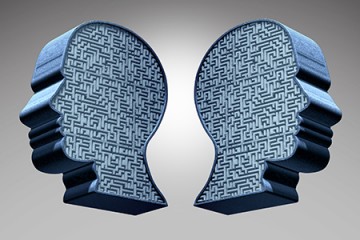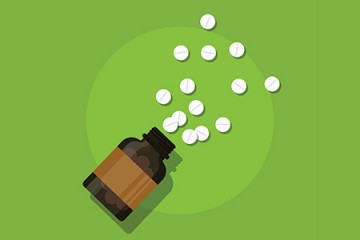Prescribed antibiotics led to adverse side effects in a fifth of the patients examined in a new Johns Hopkins Medicine study, which also found that several of those patients didn't need antibiotics in the first place.
The study, published in JAMA Internal Medicine, examined nearly 1,500 adult patients admitted to Johns Hopkins Hospital, finding side effects including gastrointestinal and kidney abnormalities. The researchers say their findings add to growing evidence that antibiotics should not be perceived as merely benign.
"Too often, clinicians prescribe antibiotics even if they have a low suspicion for a bacterial infection, thinking that even if antibiotics may not be necessary, they are probably not harmful. But that is not always the case," says Pranita Tamma, an assistant professor of pediatrics at Johns Hopkins. "Each time we think to prescribe an antibiotic, we need to pause and ask ourselves, does this patient really need an antibiotic?"
The study evaluated medical records of patients who received at least a day's worth of antibiotic treatment, after entering the hospital for reasons ranging from trauma to chronic disease in 2013 and 2014. Researchers then followed the patients for a period after their hospital stays.
In 20 percent of the cases, patients experienced one or more adverse effects from the antibiotics, the study found, with risks increasing 3 percent with each 10 additional days of the drugs. The most common side effects were abnormalities with the gastrointestinal system (42 percent), kidney (24 percent), and blood (15 percent).
Also see
Researchers also observed patients for up to 90 days for development of the Clostridium difficile infection—a bacterial cause of diarrhea that can become severe—and for development of new multidrug-resistant infections that can take longer to become apparent. In total, 4 percent of patients developed the first infection, known as "C. diff," and 6 percent developed the latter type.
Patients also experienced a range of other medical complications, including prolonged hospital stays (24 percent) and additional diagnostic tests (61 percent).
Notably, researchers concluded that 19 percent of the antibiotics prescribed to patients were clinically unnecessary to begin with, with two infectious disease experts finding no indication of bacterial infections in those cases.
The research team cautioned that their study may actually underestimate adverse effects because of the robust Antibiotic Stewardship Program at Johns Hopkins Hospital, which guides clinicians through making wise antibiotic choices.
Tamma adds that the new study results should encourage not only clinicians but also patients to better understand the risks of antibiotics. "I think it's good for patients to ask their doctors about potential side effects and how to recognize them," she says. "That alone could reduce a large portion of unnecessary antibiotic prescribing."
Read more from Hopkins MedicinePosted in Health
Tagged prescription drugs, antibiotics









